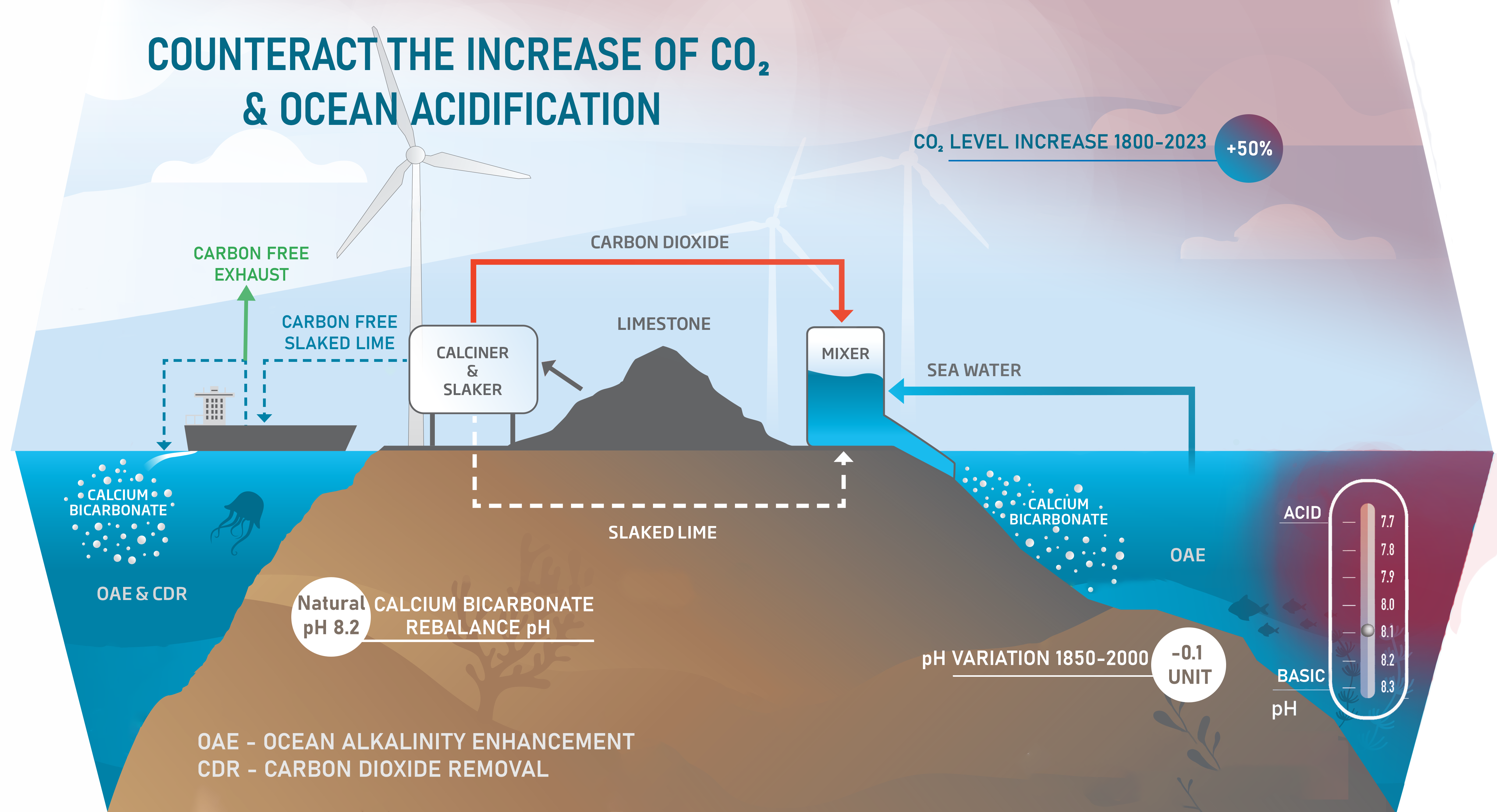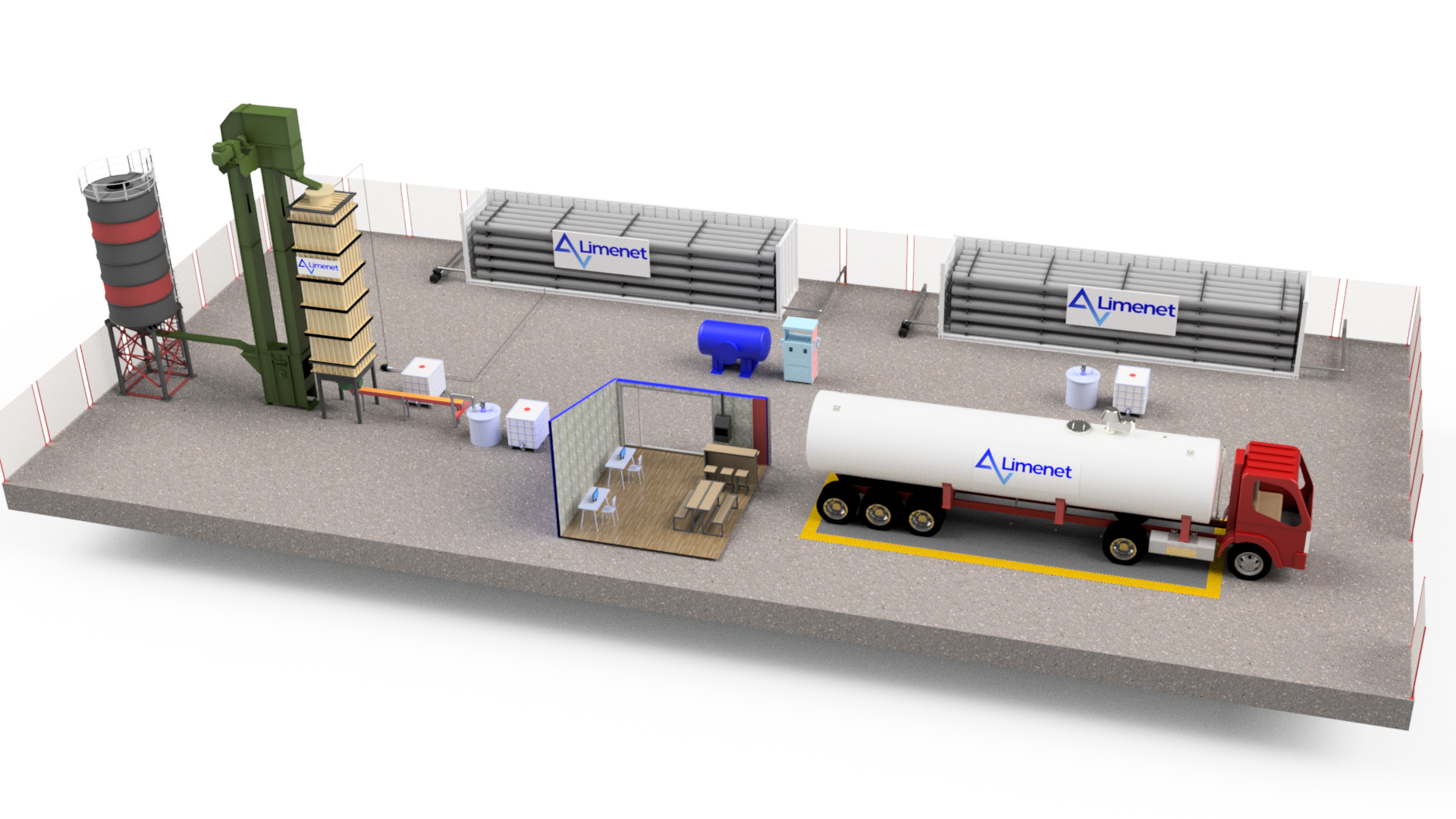The start-up Limenet
The research and studies from the Desarc-Maresanus project stimulated and fostered the birth of Limenet, an Italian benefit company based in Galbiate (Lecco), which has patented an innovative technology for storing carbon dioxide in the form of calcium bicarbonates in seawater.
Through an ambitious fundraising and sustainable technology development program, Limenet aims to become an international leader in CO2 storage through calcium bicarbonates.
Limenet's technology is inspired by the geologic carbon cycle, a natural process through which carbon is exchanged between the geosphere (soil), hydrosphere (seas and oceans), biosphere (freshwater) and Earth's atmosphere. All of these portions of the Earth, in fact, can be considered as large carbon sinks, which, under certain conditions, pass CO2 from one part to the other.
Limenet three steps
Limenet technology works through three main stages:
- Milling - Calcination - Hydration.
Limestone raw material (CaCO3) is milled, calcined, and then split into CaO (quicklime) and CO2 through thermal decomposition inside an electric furnace powered by renewable electricity. The quicklime is then hydrated to obtain slaked lime (Ca(OH)2).
- CO2 abatement from Calcination with production of calcium bicarbonate.
Slightly more than half of the slaked lime obtained is used to remove the carbon dioxide produced by calcination. The process takes place in the Limenet reactor by mixing CO2 and Ca(OH)2 in seawater: Ca(OH)2 + 2CO2 → Ca(HCO3 )2 . The other half of the slaked lime is available for downstream carbon sequestration in Step 3.
- CO2 storage.2
Half of the decarbonized slaked lime is used to store CO2 from external sources in the form of calcium bicarbonates. The calcium bicarbonate (Ca(HCO3)2) produced enriches seawater with its alkaline properties.
Tracking using blockchain
Since one of Limenet main goals is to produce negative carbon emissions, in line with its benefit vocation, the company chose to ensure maximum transparency in its actions and decided to develop, using blockchain, a method of tracking negative emissions through all steps of the process.
Limenet created a virtual mirror of its technology by connecting the plant's computers (PLCs) with decentralized databases, tracking every transaction on Polygon, Ethereum's second layer. Our negative emission certificates are made by minting NFTs certified by a third party through MRV (Monitoring Reporting & Verification).
Advantages of this tracking are:
- maximum transparency to the customer
- high traceability for reporting activities
- transparency in avoiding double counting
Know-how made in Italy
Limenet was founded by Stefano Cappello (CEO), Giovanni Cappello (CTO) and Enrico Noseda (Strategic Advisor), and can count on a high-profile scientific committee composed by Stefano Caserini (Adjunct Climate change mitigation Professor, Politecnico di Milano), Mario Grosso (Environmental Ordinary Professor, Politecnico di Milano), Francesco Campo (phD researcher, Politecnico di Milano), Piero Macchi (Full professor of chemistry, Politecnico di Milano), Guido Raos (Full professor of chemistry, Politecnico di Milano), Selene Valerio (phD researcher, Politecnico di Milano), Antonella Abbà (Aerospace researcher, Politecnico di Milano) and Sandro Carniel (Research manager, CNR).




